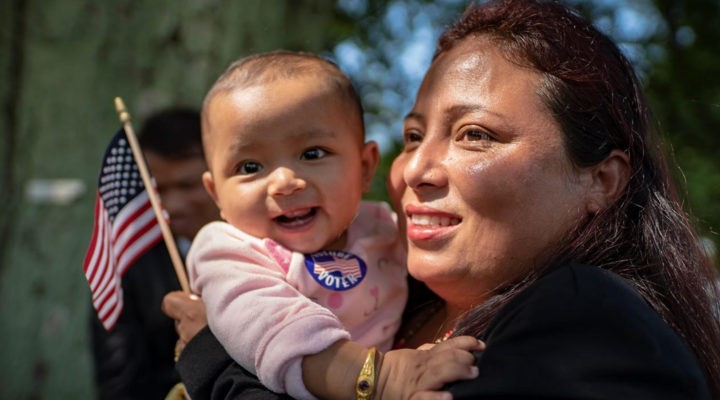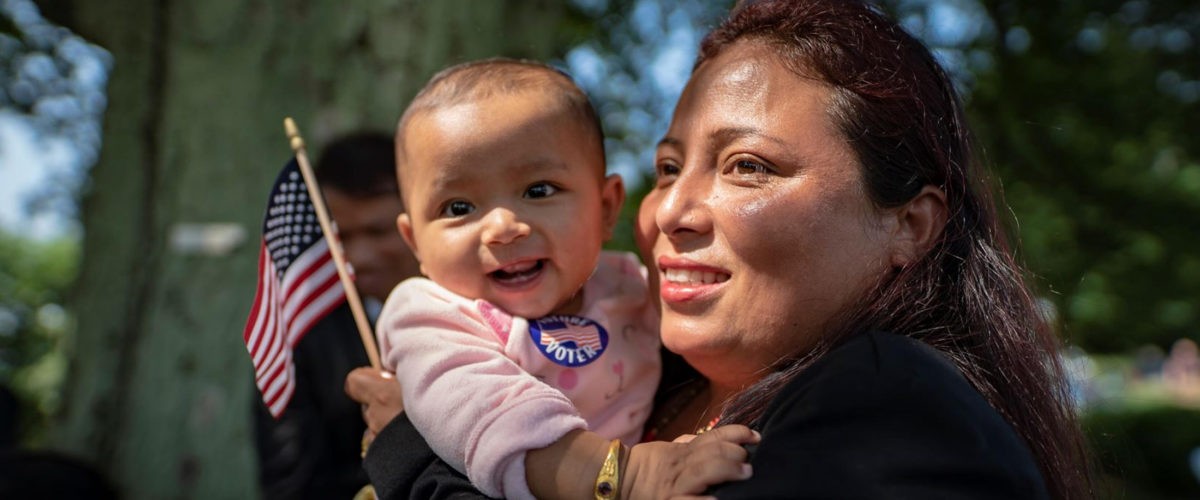The Biden administration has announced it will raise the refugee admissions cap to 62,500 for the current fiscal year and to 125,000 for the 2022 fiscal year.
This is a welcome and much-needed step as it follows a months-long delay in finalizing an increased admissions goal, which jeopardized the safety of many refugees and already had caused irreparable damage to thousands of refugees who were approved for resettlement.
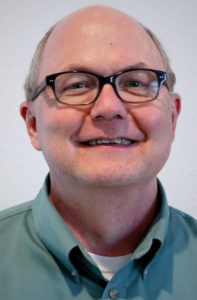
Chris Kelley
The action by the Biden administration formally terminates the dismantling of the refugee admissions program by the previous administration, which had capped admissions at resettling 15,000 refugees for fiscal year 2021 — the lowest determination on record.
Rooted in American values, refugee resettlement historically has enjoyed bipartisan success. As President Biden reminded us in his statement, announcing the raised refugee caps: “The United States Refugee Admissions Program embodies America’s commitment to protect the most vulnerable, and to stand as a beacon of liberty and refuge to the world. It’s a statement about who we are, and who we want to be.”
Recently, Church World Service convened a special call with representatives of three faith traditions to give their perspective on what it means to “welcome the stranger.”
Host Ayesha Hassan, Texas grassroots organizer for Church World Service, was joined by Imam Islam Mossaad, Rabbi Neil Blumofe, and Pastor Allison Lanza — three Texas leaders in their faith communities and advocates for welcoming refugees.
Their insights reflect a broad consensus in our country that Americans not only have the compassion but the resources to resettle some of the world’s most vulnerable people.
The refugee journey
Ayesha Hassan of Church World Service began the conversation by telling the refugee story.
“A refugees journey begins when they are forced to flee their country of origin to a relatively safe neighboring country or refugee camp. Once they arrive in the refugee camp, they apply for refugee status with the United Nations High Commissioner for Refugees, also known as the UNHCR.
“It’s important to note that refugees are the most heavily vetted immigrants to enter the United States.”
“Once a referral is submitted and approved, a series of screenings and interviews take place. It’s important to note that refugees are the most heavily vetted immigrants to enter the United States and that the series of checks can take anywhere from 18 to 24 months to complete.
“If approved, the individual family then receives extensive medical screenings to ensure they do not have any communicable diseases, including COVID-19. If they pass their medical screenings, they are then officially approved, and their travel is booked.”
A Jewish perspective
The first guest speaker, Neil Blumofe, a rabbi serving Congregation Aguda Achim in Austin, Texas, wondered what the nation collectively lost when the Johnson-Reed Act of 1924 was passed to restrict immigration from the East.
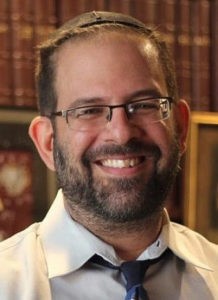
Neil Blumofe
“I wonder what excellence our country could have reached and what violence in World War II would have been forestalled had so many in our society not been afflicted by nativist fears, an isolationist spirit, and big suspicions of neighbors who spoke a little differently, or who had some different customs from different lands.
“Perhaps our country could have finally gotten out from under the heavy legacy of enslavement or the legislating discrimination and segregation in the period after reconstruction, known as redemption, or Jim Crow.
“I wonder what it would have been like for my family, Jewish people trapped in Europe, who were murdered in the organized genocide known as the Holocaust. I wonder what gains we all would celebrate, as we would have honored the diversity, the talents, and the entrepreneurial, innovative spirit of so many, who would be so grateful to be in America away from danger and violence and have the chance to pursue the American dream. And thinking of all of this, my heart is still broken.
“I wonder what excellence our country could have reached and what violence in World War II would have been forestalled had so many in our society not been afflicted by nativist fears.”
“In the Bible, it states there shall be one law for the citizens and for the stranger who dwells among you. It states that when a stranger resides with you and your land, you shall not wrong them. The stranger who resides with you shall be to you as one of your citizens. You shall love them as yourself, for you were strangers in the land of Egypt, as the Bible says, I am the Lord your God. In the Jewish tradition, this is everything.
“We are taught, ‘Never again,’ and we are to find transformative, just and positive ways toward refugee resettlement, and neither put stumbling blocks before us to do this, like restrictive legislation that leaves people to languish or be murdered, nor wish this issue will disappear and direct our focus elsewhere.”
A Muslim perspective
Islam Mossaad, imam of the North Austin Muslim Community Center, spoke of the Muslim requirement of helping those in need and how legislation should reflect enduring American values about welcoming immigrants.
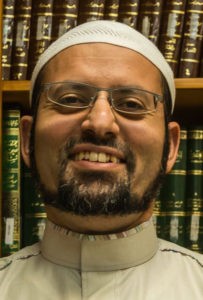
Islam Mossaad
“Compassion pervades the whole ethic of Islam in terms of how we will treat those who are in difficult and dire straits, to the point where in one tradition it states that a person who is supporting an orphan, supporting a widow, are at the same level of a person who is perpetually praying at night and perpetually fasting during the day. This idea of the social obligation — it is not an option.
“I remember growing up here in Austin, one of the communities that came were Cambodian Muslims in the ’80s, who came to Austin as refugees. Now they are very successful in different parts of the United States, in education and in business, and all it took was a little bit of rahma.
“Rahma is the word we use for the womb of a mother. It’s something that is giving protection, giving safety, but then eventually the child comes out of the womb and is then a productive part of the society.
“We need to continually revive that understanding of America. … This is a land where those who are suffering and those who are persecuted can find respite and can find a place alongside their fellow citizens.
“Prayer is important. But prayer by itself is a voiceless act.”
“Prayer is important. But prayer by itself is a voiceless act. What really raises our voice up to God is when he sees us helping one another and coming to the aid of one another, especially the most desperate, the most vulnerable.
“So let compassion and mercy come into legislation and let it come into the reality of the principles and values espoused here in the United States of America.”
A Christian perspective
Finally, Allison Lanza, pastor of Ridglea Christian Church in Fort Worth, Texas, spoke on how the life of Jesus reflects the life of a refugee and how his followers should respond.
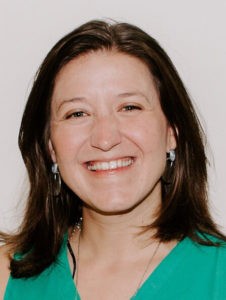
Allison Lanza
“The Christian narrative is clear that welcoming refugees, loving our neighbors, standing with the oppressed is not optional. Unfortunately, the public Christian narrative in our state and in our country has not made that so clear. Many who are anti-immigrant and anti-refugee have spoken about this from a Christian faith perspective. That is antithetical to what our Scriptures say and who we are.
“The story of Jesus, his family tree, as we hear in the Gospel of Matthew, is filled with people who were foreigners. That’s who he comes from. His story begins as a refugee, his life is threatened from political danger when he is first born, and his family flees for safety.
“The Christian narrative is clear that welcoming refugees, loving our neighbors, standing with the oppressed is not optional.”
“We remember that Jesus was killed by political oppression for his religious beliefs and actions. This, if nothing else, should call us to take action, to welcome those who are oppressed because of their beliefs and because of their actions. But the story ends with Easter, it ends with hope, it ends with life speaking louder than death, love speaking louder than hate.
“As faithful people, we must be the advocates who speak out for that love and welcome in this place. I’m so grateful to each of you all who are being that advocate, who are calling your political leaders, who are welcoming refugees when they arrive in your cities. Thank you for showing what that love lived out looks like.”
Chris Kelley, a Dallas-based journalist, is active in advocacy work for Refugee Services of Texas.
Related articles:
Faith leaders express joy as Biden finally raises ceiling for refugee admissions to 62,500
Biden administration skewered for keeping Trump-era cap on refugee resettlement
Refugee resettlement expected to rebound, but the pipeline is broken
Biden plans to restore refugee admissions, but rebuilding the system will take time
What would happen if immigration policies were based on majority opinion in the U.S.?

